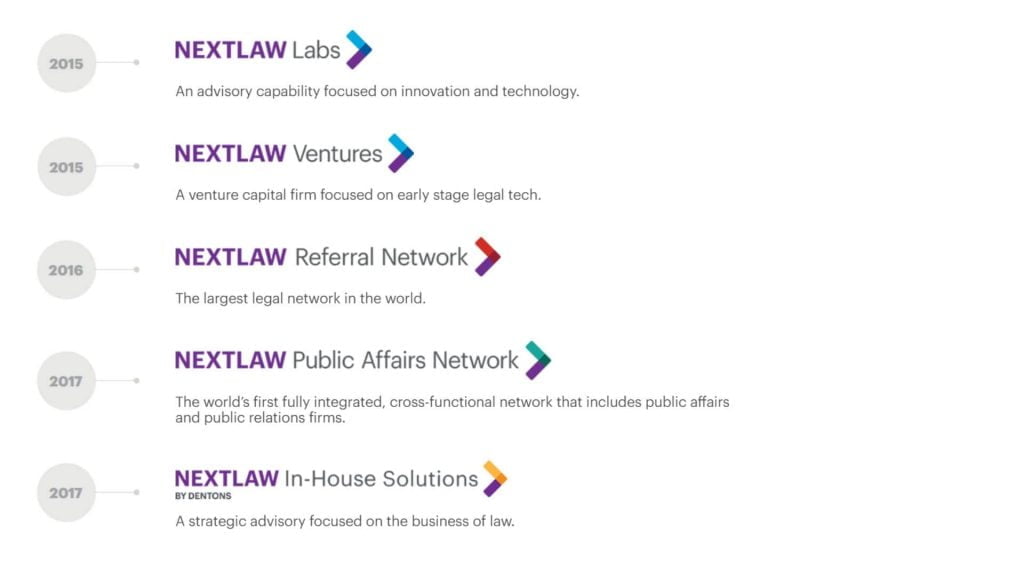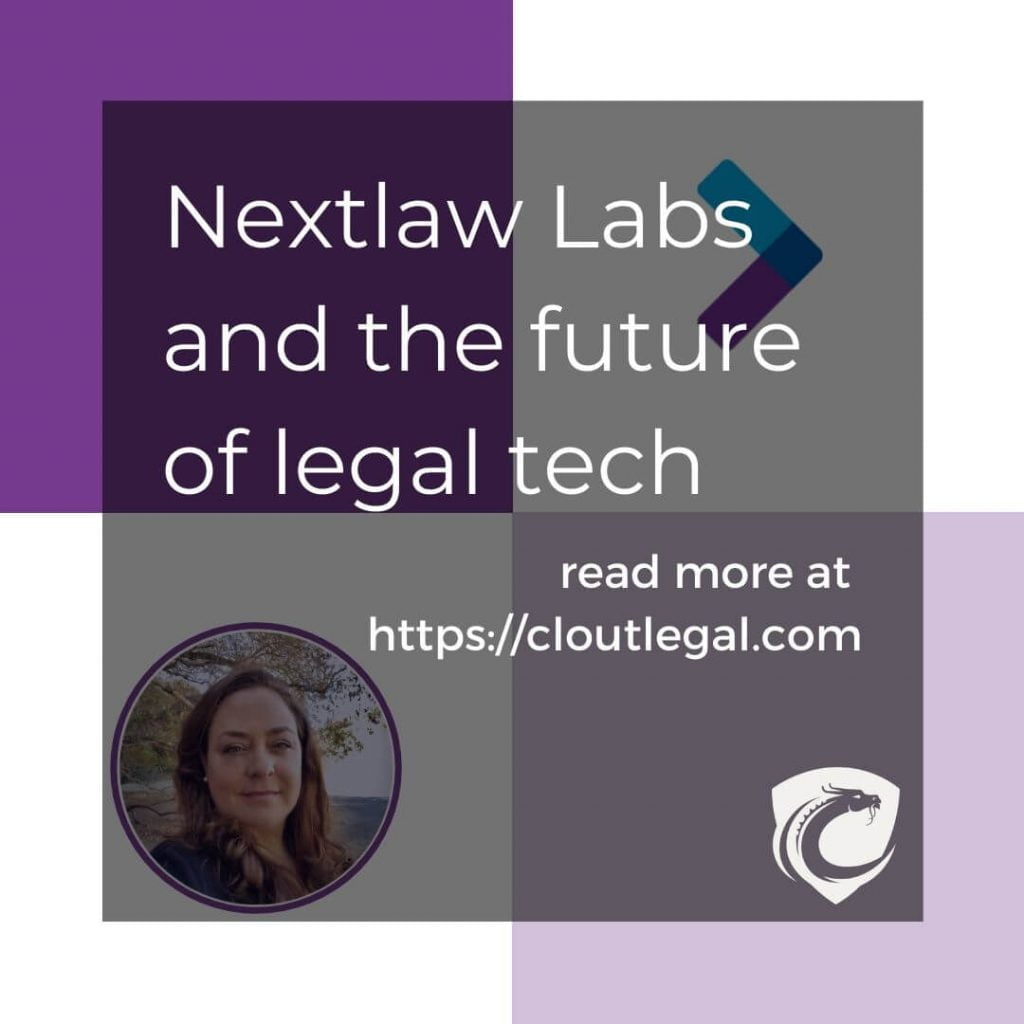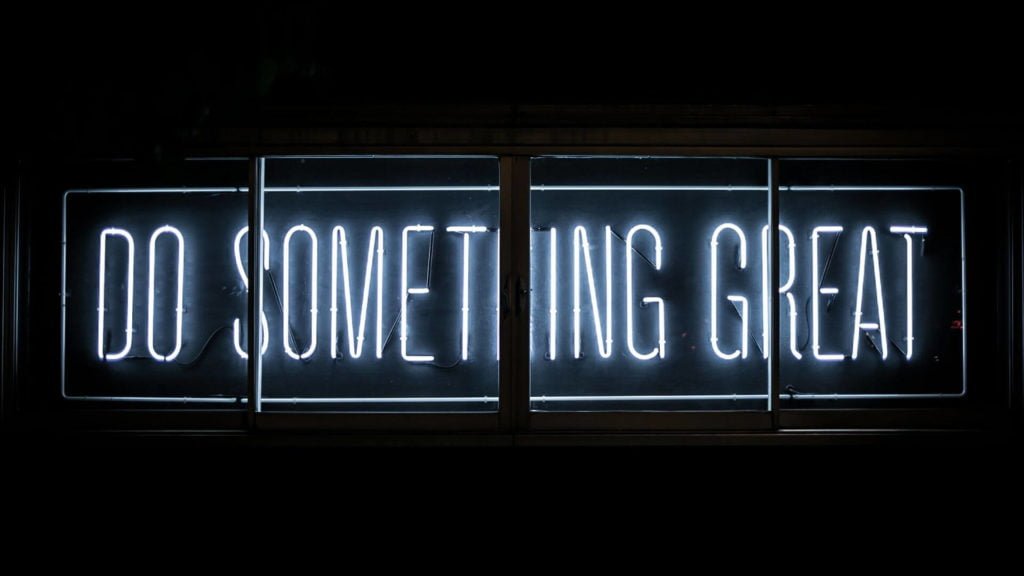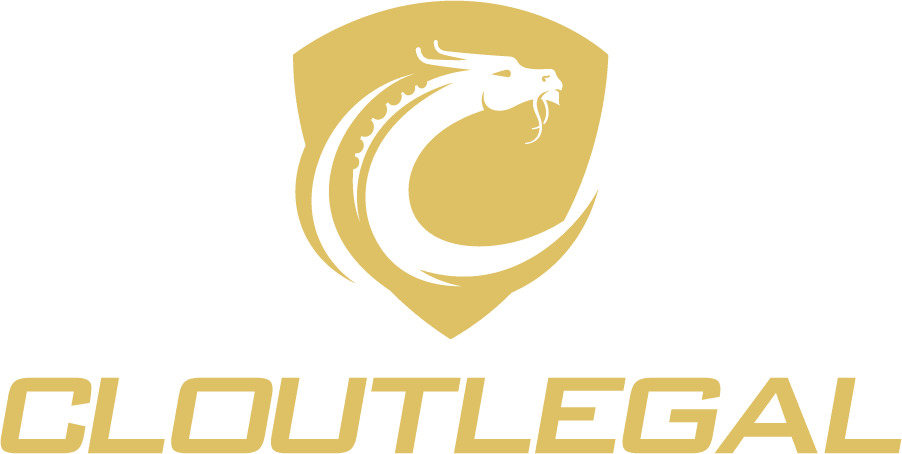Nextlaw Labs - Dentons' experiment with legal tech
Some BigLaw firms have much more to show than what it usually seems (as I also learned a few articles ago).
Dentons, born and grown in a series of mergers, would otherwise feel like a typical BigLaw story. However, just two years after its birth, Dentons started launching affiliated companies that would enable it to drive innovation in the legal space.
And the list isn't small either.
NEXTLAW initiatives by Dentons
Nextlaw Labs - the first among the group of Nextlaw companies - was founded in 2015. It is the first initiative of its kind. Its aim is to curate, pilot, and adopt legal tech and processes that address legal business challenges.
Back in 2013, when I went through acceleration, I wondered why law firms weren't doing what felt intuitive. Why leave innovation to someone else? Especially if they already had all the know-how and resources to incubate innovative legal tech, processes, and companies?
Maya Markovich has been part of NextLaw Labs, Dentons’ tech-focused innovation catalyst, since its inception in 2015. With her unique vantage point, I was curious to learn what was behind the Dentons initiative.
What prompted them to act? Wasn’t churning billable hours good enough?
Below are Maya's answers, insights, and thoughts on the importance of innovation in the legal industry.
On top of the legal tech landscape
Q: For starters, would you tell us how your typical day looks?
Maya Markovich: No two days at Nextlaw Labs are the same (chuckles). A lot of what we do involves change management. Hence, I draw on that experience to maximize engagement, drive adoption, and overcome resistance.
On any given day, I could be vetting potential investments and partnerships with early-stage legal tech startups. I give my best to accelerate companies, their business, and technology, both in and outside the Dentons ecosystem.
Likewise, I often work with attorneys to explore new solutions and consult with clients on their legal workflow challenges. Additionally, I engage in strategic planning with global practice leaders to define and execute their practice innovation strategies.
Simply, I try to stay on top of the rapidly expanding and evolving global legal tech landscape.
Photo by Abigail Lynn on Unsplash
Q: As a part of your role, how often do you interact with legal tech startups? Must be daily, right?
MM: We've reviewed close to 400 legal tech startups as part of our Nextlaw Ventures investment opportunity pipeline. I've personally spoken to most of those as part of our vetting process. And since the sector is snowballing, I still talk with new startups every week.
I also work closely (and daily) with the startups we've collaborated with via investment or partnership. You know - gathering feedback, running pilots, assessing success, supporting implementation, and helping scale intelligently while addressing pressing market challenges.
Setting new legal industry standards
Q: What is the most energizing part of working with legal tech startups and legal innovation? And what is the most challenging aspect of it?
MM: Working with legal tech startups is so rewarding. There are many problems to be solved, and a real opportunity to define the market with a new solution.
Legal innovation is also an excellent place to use my experience and create meaningful change in the legal industry.
(at the same time - I am continually learning)
It can sometimes be challenging when the demand is higher than what the startup can scale to immediately. For example, in different regions or practice areas, due to limited resources.
So, yes, managing expectations is also a big part of my role!
Q: “Definition, development, launch, and adoption…” - Let’s focus on the “definition” part a bit - how do you define early-stage legal tech? Where do you start?
Early-stage is indeed a fluid term - for us, it is seed or pre-seed. However, it has to include elements like a full-time founder/leadership team, an MVP, and some early market traction.
In terms of identifying challenges to be solved, we take a loose design approach to our work. We ask many questions and listen to the end-users (attorneys or clients).
The end goal is (of course) to identify and prioritize business problems within the practice of law for which technology might be a solution.
Photo by Boris Bobrov on Unsplash
Dentons expects the legal to shift
Q: Dentons created Nextlaw Labs and Nextlaw Ventures to support, reinvent, and boost its primary business. Why do you feel Dentons took this step? How do these impact Dentons’ business operations?
MM: Dentons recognized early on that the legal profession is undergoing disruption, driven by things like globalization, technology, generational shifts.
(and most imminently, client needs and expectations…)
Nextlaw Labs was started to shape and drive this disruption and embrace the opportunity to be a force for transformation. Our $800 billion profession has traditionally been very resistant to change.
Our mission is to solve business problems via early-stage legal tech. Nextlaw has since grown into five operating units. In addition to Nextlaw Labs, these include:
- Nextlaw Ventures (the Labs investment arm and the world's first legal tech-focused venture fund);
- Nextlaw Referral Networks (the world's largest networks of small to midsize firms and PR firms); and
- Nextlaw In-House Solutions (a consulting advisory focused on supporting in-house counsel).
These entities all provide Dentons clients with holistic, comprehensive support that goes well beyond traditional legal services.
Q: Do you feel the traditional BigLaw (hourly based) business model is dying out? If yes, what would replace it in your view?
MM: Regardless of the leaps and bounds made in legal technology, the billable hour continues to constrain industry development.
At Dentons, a real game-changer has been the "innovation hour,” enabling attorneys to spend time on innovation-related activities. They are merely exploring, playing with new technology, providing feedback, participating in a proof of concept, etc.
All the above counts towards their billable hour requirements, freeing up people who would otherwise feel very time-constrained. Loosening the bonds of the billable hour, and becoming more comfortable with the value and process of experimentation, are critical to transforming the legal industry.
Down the road, I see legal services delivered increasingly on a project-based, SaaS model.
Photo by Sincerely Media on Unsplash
Literature for an innovative mind
Q: What books (if any) would you advise anyone (interested in innovation) to read? My personal favorite is still The Mom Test. Anything else?
MM: I loved WTF?: What's the Future and Why It's Up to Us by Tim O'Reilly. He argues we need to build and employ technology for the good of many rather than the benefit of a few.
For example, at Nextlaw Labs, we're currently collaborating on a few systemic solutions. Some enable real-time transparency into environmental regulations, COVID-19 requirements across regions, and compliance with rapidly shifting statutory obligations.
With access to justice, we need tools that increase access to and quality of legal services without algorithmic bias. Since I'm in the trenches, I feel responsible for guiding early-stage technologies with a more holistic, longer-term view.
Another great book is The Fuzzy and the Techie— Why Liberal Arts Will Rule the Digital World by Scott Hartley.
Hartley posits that the contributions of the fuzzies--social scientists--are too often discredited. Their perspective will inform and steer the development of the most creative and successful new business models. On the other hand, techies, or computer scientists, build and manage the technology supporting the business models.
For lawyers, knowledge of context, critical thinking skills, and EQ are increasingly important. All of those have to ensure that legal services are both effective and ethical. The underlying tech may change, but the role of lawyers is becoming all the more crucial as these technologies evolve.
Editor's note - Maya puts it quite nicely why lawyers will be in demand in the future, even as their role changes (e.g., through use of RPA).
The pressure to adapt is here
Q: Disruptive vs. evolutionary innovation - which one do you favor, and why?
MM: It depends on the situation. The legal profession is feeling a broad urgency to modernize. It needs to meet modern standards, and implement current tools and processes to benefit all parts of the industry ecosystem.
The law has not benefited from these advances in the way other industries have. Hence, I look at legal industry modernization as leveraging the lessons others have learned about operating in a global economy, with all the constraints and benefits of the world we live in today.
In many cases, clients are more advanced in this regard. They're pushing their firms to eliminate outdated models of work. Clients urge them to adapt to the standards of flexibility, efficiency, and transparency they're already using.
On the other hand, innovation - continually trying new things, consciously avoiding preconceived notions or biases, and thinking expansively and creatively about ways to solve problems - is a much more difficult, messier mandate.
It is paramount to focus on applying new methods to existing workflows and adapting existing workflows to new demands. We have to make this tectonic shift as an industry to enable substantive progress toward growth, improved efficiency, increased access to justice, or any other advancements.
Law has been mostly static for generations. We need to be looking for opportunities to find new, better ways to think and work.
Some firms already shelved innovation
Q: What do you consider the most important skills that lawyers should have for the future?
MM: There's a growing understanding that change is imperative, especially now, which helps build momentum. Understanding how people think and what motivates them is also useful. It helps to reach buy-in on new processes. Likewise, it brings diverse stakeholders together for a common goal that benefits them individually and collectively.
To thrive in the legal industry of the future - and present - lawyers need some foundational literacies. To name some, a basic understanding of data science, money management, design thinking, and project management. They also need to develop competency in creativity, flexibility, collaboration, and emotional intelligence.
And to truly effect change, lawyers with character qualities of resilience, creativity, curiosity, comfort with ambiguity, and a bias to action will have the most impact.
Q: What do you see as potential threats to law firms today? What should they pay attention to?
MM: I think the most significant threat is going back to the traditional practice of law. The pandemic has forced the industry forward in so many ways.
It's starting to become clear which firms are focusing on coming out of this situation better than they were before, and which are thinking this is a temporary shift.
Some firms and legal departments are shelving or abandoning innovation or transformation projects. However, others are leaning into innovation with a focus on the mid- and longer-term future - where our clients will need us more than ever before.
Trying new things will keep us sharp
Q: Vice-versa, what do you find as possible opportunities? It can’t all be that bad, right?
MM: While the law will never be the same, clients will need us more than ever. Not the old school kind of lawyer, but trusted counselors who can think creatively, have in-depth knowledge of their business and have the EQ to understand their needs.
Innovation requires experimentation. I often feel there's now an opening for lawyers to do more experimenting with new tools and processes, with the psychological safety to do so.
(nobody is expecting attorneys to know how to use these new tools perfectly well - they have a bit of leeway to experiment, try and fail without judgment)
Photo by Clark Tibbs on Unsplash
The legal profession’s constraints have traditionally not made any room for this, nor for supporting and seeing the value in others’ experimentation.
But I hope there will be, at least for some, a real shift in outlook that will make folks more open to that experimentation and thus, pave the way for real innovation and transformation.
And most importantly, because the entrepreneurial mindset requires seeking out diverse perspectives, I am optimistic that this experience has shown how essential diverse teams are to creating solutions that will be useful to people with different needs, assumptions, skill levels, and perspectives.
As someone with the good fortune to work with colleagues from around the globe, I know that understanding and collaborating with diverse points of view is not optional - it’s NECESSARY.
There are already countless examples of the pitfalls of technology built by a homogeneous group.
Building a team of people very different from yourself and appreciating their way of solving problems is a vital yet underestimated component of success. We simply cannot win without it.
Ivan Rasic holds the Transnational Trade Law and Finance LLM, a program by Universidad de Deusto (Bilbao, ES), Universiteit van Tilburg (Tilburg, NL), and Goethe Universität (Frankfurt, DE). After his work in law firms and inhouse, he started a legal tech company.
Nowadays, Ivan leads STP Informationstechnologie GmbH's Sofia RnD center with project/development management, culture, strategy, and special project initiatives.
Ivan is an Ambassador at European Legal Tech Association (ELTA). He closely follows and writes on future of law, legal tech, ALSPs, and new ways of delivering legal services.
Maya Markovich continuously ranks among the most influential professionals in legal tech (ILTA's "Influential Women of Legal Tech," The Technolawgist's "Women Leading Legal Tech," and an ABA Legal Technology Resource Center "Woman of Legal Tech," to name some).
She has been central to Nextlaw Labs, Dentons's tech-focused innovation catalyst, since its inception in 2015. She delivers next-generation technology, process, and business growth services across the globe for the world's largest firm and its clients, including the acceleration of legal tech startups in the Nextlaw Ventures portfolio.
Maya also serves on the boards of Legal Access Alameda, LexLab, and OneJustice. She also mentors for LegalGeek's Women in LawTech, The Legal Forecast, and the University of Arizona TechLaw Fellows programs, supporting legal tech initiatives to improve access to justice and gender equity.
Ivan Rasic holds the Transnational Trade Law and Finance LLM, a program by Universidad de Deusto (Bilbao, ES), Universiteit van Tilburg (Tilburg, NL), and Goethe Universität (Frankfurt, DE). After his work in law firms and inhouse, he started a legal tech company.
Nowadays, Ivan leads STP Informationstechnologie GmbH's Sofia RnD center with project/development management, culture, strategy, and special project initiatives.
Ivan is an Ambassador at European Legal Tech Association (ELTA). He closely follows and writes on future of law, legal tech, ALSPs, and new ways of delivering legal services.








